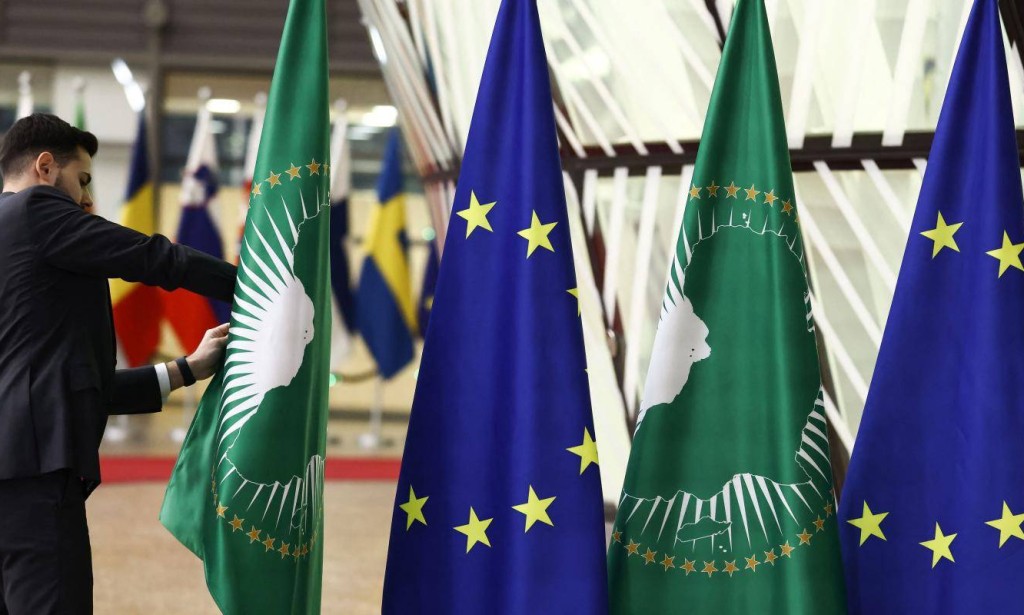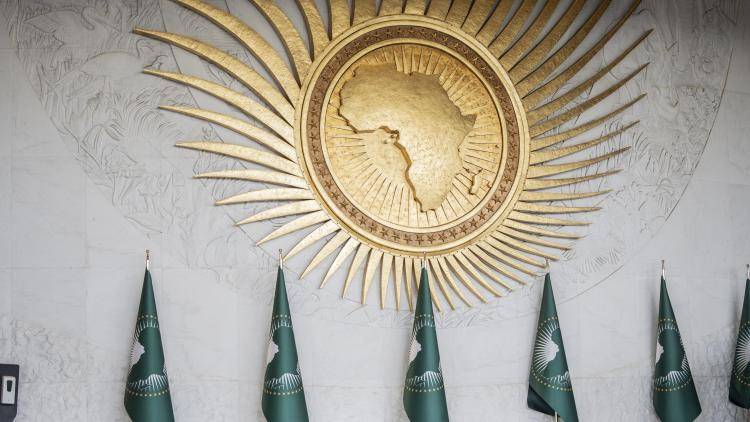When leaders from the African Union (AU) and the European Union (EU) meet in Luanda for their seventh summit on 24–25 November, they will do so at a moment when geopolitical certainties are dissolving and both blocs face rising pressures at home.
The AU has become far more central to Europe’s economic and geopolitical calculations, not least because of soaring demand for African critical minerals and EU countries’ growing insecurity and migration concerns.
Europe, in turn, remains a vital partner for Africa. It is the largest market for African exports and a leading source of investment, development finance and technology. The EU is also a key diplomatic ally in global forums where African governments seek reforms on debt, climate finance and global governance.
In February 2022, the sixth AU-EU summit in Brussels produced a far-reaching ‘Joint Vision for 2030’, promising a reset of political, economic and security cooperation. Within days, however, Russia’s war in Ukraine reshaped international markets, diverted political attention and laid bare diverging expectations of multilateral alignment. The ambitious plans of the sixth summit were completely derailed.
However, the continued atmosphere of global uncertainty now makes a stronger case than ever to rekindle a sense of ambition and reset AU–EU relations.
Agenda setting
African countries face longstanding challenges of weak industrialization, infrastructure gaps and high borrowing costs, and persistent governance and security issues. Protracted conflicts in Sudan, eastern Democratic Republic of the Congo (DRC) and parts of the Sahel underline the fragility of state institutions, the hurdles for regional coordination and the limitations of the AU’s influence. Meanwhile, a wave of youth-led ‘Gen Z’ protests – from Morocco to Kenya and Madagascar – indicate growing frustration with political stagnation and economic exclusion.
EU delegates arrive in Luanda with their own challenges, burdened by sluggish growth, stretched public finances and the strategic drag of the Ukraine war – pressures that have eroded confidence and narrowed room for manoeuvre abroad. The EU’s geopolitical weight no longer carries the inherent sway it once did. At home, a rightward shift in domestic politics has hardened debates on migration and external partnerships. That has reduced the space for long-term strategy.
At the same time, the EU’s own integration project is stalling. Disagreements over fiscal reform, debt and competitiveness have exposed its own vulnerabilities. And the bloc has struggled to act on them collectively and decisively.
The EU and AU broadly agree on the need for a more coherent agenda. But actually delivering meaningful frameworks is complicated by the fact that several of the states most central to Europe’s priorities – from migration to mineral deals – are grappling with conflict. The AU cannot effectively coordinate policies where state authority is fragmented, leaving the EU unable to forge the stable, long-term partnerships in areas it regards as the most strategic.
Africa’s own priorities – on industrialization, regional integration, debt restructuring and digital transformation – are increasingly set by African institutions rather than external donors.
African countries are less willing to agree cooperation frameworks that lock them into dependence on exporting commodities – for others to turn into higher value products. Partnerships must now show they can help African countries reap the full economic benefits of their natural resources and generate the millions of jobs needed for a rapidly growing youth population.
Nor is the EU the only potential partner for the AU. China’s engagement continues to deepen. The Gulf States, India and others are expanding their presence, while US engagement fluctuates.
The EU’s €12 billion investment package to South Africa, announced in October, provides a signal of its intent to compete. But the framing of the EU approach – as a sustainable alternative to non-traditional partners – can often attract charges of inconsistency. The EU promotes green-industrial partnerships while imposing regulatory standards – for example under Article 9 of the CBAM regulation, requiring proof of carbon-price equivalence – that often hinder African exporters and weaken the cooperation the bloc seeks to build.
On migration, European countries remain trapped in a cycle of denunciation rather than innovation. Many focus more energy on the immediate political problems generated by irregular flows than seeking long-term solutions with African partners.
Subscribe to our weekly newsletter
Our flagship email provides a round-up of content, plus the latest on events and how to connect with the institute.
Article 2nd half
An obvious way to begin would be through support of the implementation of the African Continental Free Trade Area (AfCFTA). By expanding intra-African trade and mobility, and accelerating manufacturing and industrialization to create millions of new jobs, the AfCFTA can strengthen economic resilience and, over time, help reduce the structural drivers of economic migration to Europe.
Grounds for a genuine reset
Despite the two bloc’s challenges, the opportunity for renewal is real. The AU’s expanding digital and urban market potential, demographic dynamism and critical minerals present major new opportunities.
The EU, facing labour shortages and an energy transition, needs the AU not only for supply but as co-creator of green and digital value chains. That means building manufacturing and mineral processing capacity within Africa, or ‘value addition’, investing jointly in technology and research, and training workers for shared industries.
For Luanda to serve as a genuine reset, leaders should therefore move beyond declarations and deliver concrete first steps.
These should include the establishment of an AU–EU platform on critical minerals and green industrialization: not a buyer-supplier forum, but a mechanism to support value-addition, and connect EU investment with that from partners in Asia and the Gulf. It should also enhance supply chain transparency (improving understanding of the origin and production of goods) and align regulatory standards.
Migration is one of the most politically divisive issues in the EU, and one that is fuelling Europe’s rightward shift. A genuine dialogue is needed to expand legal pathways, skills partnerships and youth exchanges to rebuild trust and deliver greater benefits than reactive border measures.
The EU also needs a fundamental shift in ambition. An ageing continent cannot sustain its economy or keep its generous pension systems afloat without new skilled workers.
A regulated migration framework, aligned with labour-market needs, would both address those needs and strengthen ties with AU partners.
A more forward-looking approach would turn migration pathways into a shared economic project, rather than a recurring political flashpoint. Predictable pathways for skilled workers and students would meet Europe’s economic needs and forge new connections with the very regions it seeks to partner with.
Europe has also neglected one of its traditional strengths: cultural diplomacy. At a time when trust-building is more important than ever, revitalizing cultural and educational exchanges would help repair frayed perceptions, cultivate long-term relationships and restore one of Europe’s most credible forms of influence.
But Africa also has a role to play: investing in its own cultural institutions, academic networks and public diplomacy would ensure the exchange is genuinely mutual, amplify African narratives internationally and strengthen the foundations of a more balanced partnership.
While no single initiative will solve all tensions, such steps would place the AU–EU partnership on a more pragmatic footing – one based on mutual interest, shared responsibility and long-term strategic thinking.
If leaders seize this moment, Luanda could launch a more realistic and forward-looking phase in relations. If not, both continents risk drifting into a partnership defined by missed opportunities rather than shared strategy.




You must be logged in to post a comment.